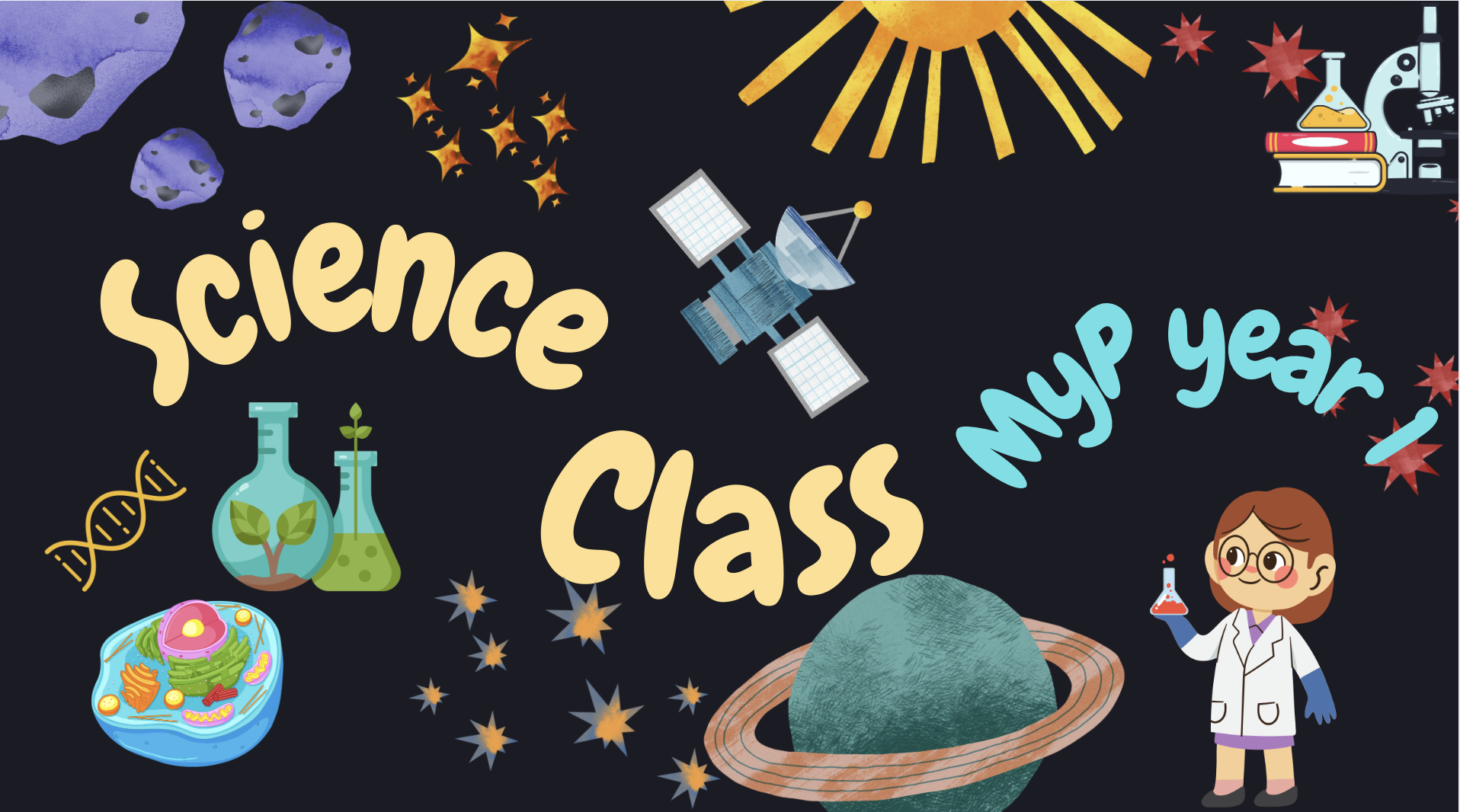
Created with Canva
LICEO PINO VERDE
Subject: Science
TEACHER: Daniela Margarita Echeverri Delgadillo
INSTITUTIONAL EMAIL: daniela.echeverri.d@liceopinoverde.edu.co
HOURLY INTENSITY BY CYCLE (HIC): 5
GRADE: MYP Year 1 (Sixth grade)
PERIOD: First and second
INTRODUCTION
The natural sciences rely on logical reasoning and the methodological apparatus of the formal sciences to understand the phenomena that make up the world. In the natural sciences course, the students will be provided with the resources, techniques and knowledge that will allow them to understand and enter the world of science, thus strengthening their learning process. Additionally, the course will be taught in the English language, to improve the student's skills in the second language and to open the borders to a global context.GENERAL OBJECTIVES
- Understand and value science and its implications.
- Consider science as a human activity that has benefits and limitations
- Form an analytical, inquiring, and flexible mindset to ask questions, solve problems, elaborate explanations, and judge arguments.
- Develop skills to design and conduct investigations, evaluate evidence, and reach conclusions.
- Become aware of the need to collaborate and communicate effectively.
- Apply their knowledge and language skills in a variety of real-life situations.
- Develop sensitivity towards living and inert elements of the environment.
- Reflect on learning experiences and make informed decisions.
COMPETENCES / ABILITIES TO DEVELOP
The development of the subject will guide students to understand natural sciences as a global tool to understand life and all the phenomena that occur within it; and the development of skills such as observation, questioning, analysis, and argumentation, which constitute transversal skills for the student's formation process.Science courses help students develop key skills in approaches to learning that will allow them to enjoy projects and achieve good results. In this group of subjects, students have considerable opportunities to practice the skills of approaches to learning, those of organizing and representing information in a logical way. Collaborative skills are also an essential aspect of scientific activity.
METHODOLOGY
- Student guided inquiry.
- Master class.
- Workshops.
- Laboratory practices.
- Unit guided projects.
- Expositions.
- Discussions.
- Consolidation of own ideas from audiovisual material.
CONTENT AND CONCEPTS (depending on the period)
First semester content
- Structure and characteristics of eukaryote and prokaryote cells
- Structure and characteristics of animal and vegetal cells
- Tissues formation
- Types tissues
- Organs
- Organs as constituents of systems and their functions
- Human Body Systems
- Human Nutrition
- Digestive System
- Circulatory System
- Respiratory System
- Human Body System Illness.
Second semester content
Chemistry- States of matter
- Kinetic-Molecular theory, changes of states
- Elements, compounds and mixes
- Physicochemestry properties (solubility, viscosity, density, boiling and fusion points)
- Mixes and practices of mixes separation
- Force and its representations
- General electricity: electric circuits, conductors and isolators, electric charge
- Conductors and isolators, electric charge.
EVALUATION PROCESS
Formative evaluation- Expositions where the students explain the goal and the results of a scientific research to their classmates, stating if they consider that the research was carried out properly.
- Visible Thinking techniques are going to be used as much as possible to encourage the students in their learning process.
- Development of readings from the students of scientific research, followed by an exposition of the analysis made.
- Group gatherings between students, where they confront a certain topic, with a goal of formulating a conclusion about a scientific research based on the result of it.
- Laboratory or simulation experiments will consolidate the importance of what students learn, and how that knowledge can be applied.
EVALUATION CRITERIA
- Knowledge and understanding: 25%
- Inquiry and design: 25%
- Processing and evaluation: 25%
- Reflection on the impact of science: 25%
RESOURCES
- Technological Resources: iPad or laptop.
- Bibliographic: PAI guidebook. Physical Notebook and papers to write/draw on.
- Behavioral recommendations for the proper development of the class
- The classes will be carried out under an atmosphere of respect, where the school’s rulebook guidelines will prevail.
- The use of electronic devices will be allowed and supervised by the teacher.
- Punctuality is primordial; all students must be willing to receive the class in the best possible way
CONTROL DE CAMBIOS
FECHA DEL CAMBIO:February 4th, 2025
CAMBIOS REALIZADOS: Cover Page update
REALIZADO PO Daniela Margarita Echeverri Delgadillo

- Teacher: Pauline Perry Arbelaez
- Teacher: Brandon Suarez Jiménez